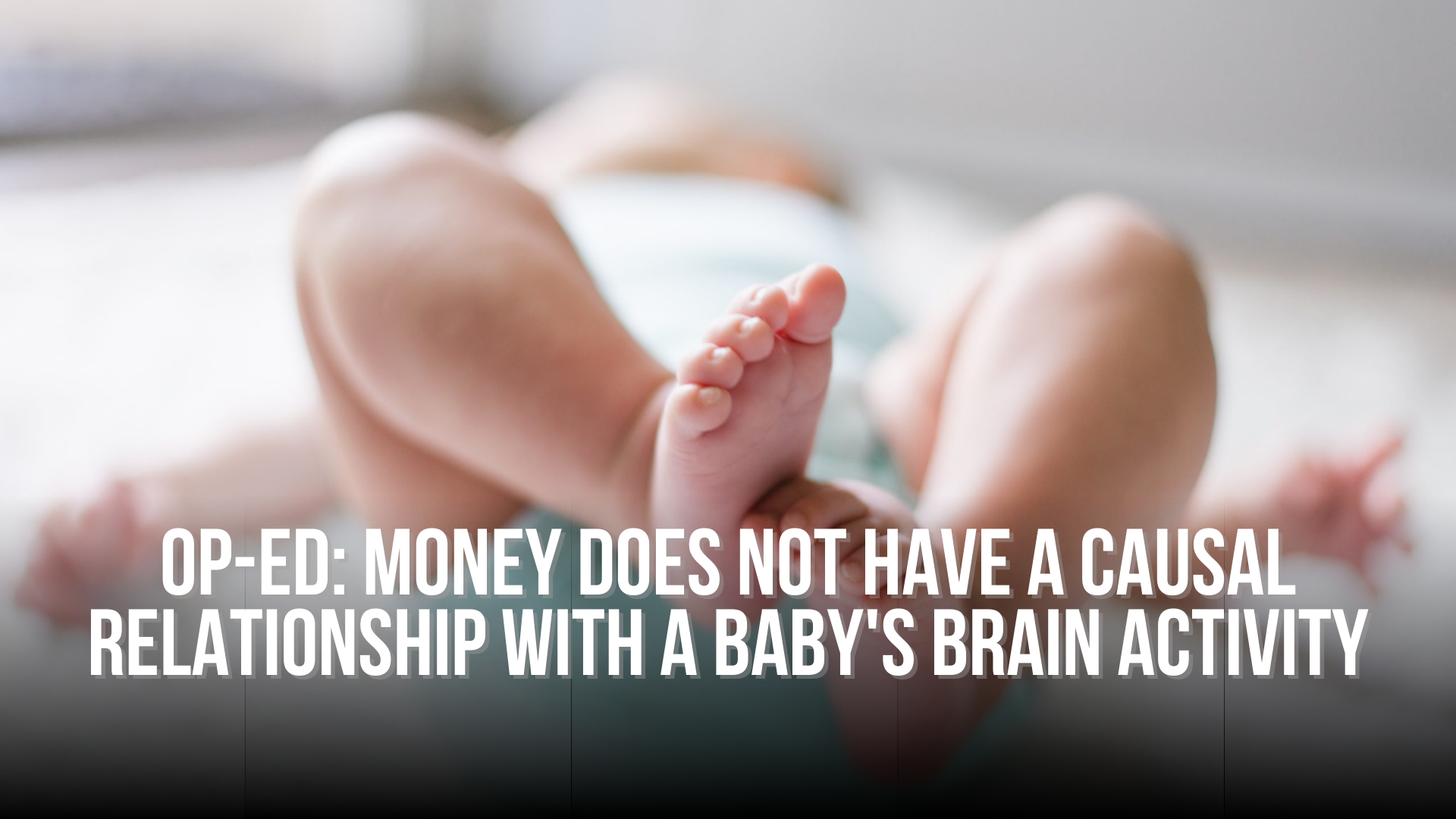Op-Ed: Money does not have a causal relationship with a baby's brain activity
File image attached of an infant. Image from Unsplash
Joshua Peters, for the Carolina Journal
An article published by NC Policy Watch caught my attention the other day. The piece ran with the headline, “Boosting low-income mothers’ income increased their babies’ brain activity.” After seeing the headline, I asked myself, “How can the disbursement of money to the mother have an impact on a baby’s brain activity?” Of course, I had to read the article to find out what was going on.
I found the article itself to be relatively straightforward. It highlighted key elements of the study and quoted what appears to be excerpts from an email exchange with one of the co-authors, Sanford School of Public Policy at Duke professor Lisa Gennetian. The article did make a plug to marry the study to President Biden’s Build Back Better plan to expand the child tax credit as if to suggest it is backed by “science.”
Despite two cheers for Biden under the radar, it was a relatively standard article. I have no major issue with it; however, the study has a lot of problems.
A flawed hypothesis drives the study. The paper claims that there is a causal impact of a poverty reduction intervention on early childhood brain activity. When you hear the word ‘causal’ in any social science paper, be skeptical of the claim. It is not that a social science experiment can’t make causal inferences and be successful at discovering causal relationships. Still, it is rare for that to be the case in a meaningful sense. Moreover, the hypothesis suggests changes in the amount of unconditional cash gifts to the mother have a causal influence on childhood brain activity. Let’s be clear here. This is not possible.
A small child less than a year old cannot comprehend the concept of money, let alone their family’s socioeconomic status. The child would be indifferent to changes in family income. They have no understanding that money is needed to purchase resources. The infant gets everything from its mother until the brain develops an understanding of how to live in our species’ social ecosystem. Until then, the infant has no interest in the fiat system. Therefore, changes in the family’s disposable income can’t have a causal effect on an infant’s brain activity at that age.
Sure, the parents could be sensitive to their financial position, and that could change their behavior positively or negatively in such a way that it influences the child’s brain activity. But that would mean income would at best be an indirect consequence and not a direct cause. Accordingly, it is not the family’s financial position but rather their behavior around their financial position that can potentially impact the child’s brain activity.
Of course, this means the personality and mental health of the mother are perhaps a significant factor in the child’s development. Personality, insofar as I know, is not meaningfully influenced by income levels, namely, a kind person is kind regardless of their wealth. Likewise, the mother’s disposition to stress, anxiety, and depression can impact a child’s brain activity. However, money cannot address all forms of anxiety or depression.
Additionally, malnutrition can have an impact on the child’s cognitive ability. Certainly, an increase in disposable income can address food scarcity if the money is spent on food. However, this conditional use of money on food is predicated on a belief about what is nutritional for children, both in substance and quality.
Accordingly, what is being controlled for by the experiment is an indirect consequence to the child. It is the mother’s personality, behavior, and or capacity to raise the infant in such a way to have a positive impact on brain activity.
What follows from this poorly formulated hypothesis is that the study then becomes inappropriately structured like a clinical trial experiment, whereby the control group gets a low-cash gift. The treatment group receives a high-cash gift. However, the relationship with the baby’s brain activity is, if anything, predicated on the mother’s behavior upon receiving the cash gift. At the very least, we need to bridge the cash gifts to some type of behavioral change from the mother that could have a causal relationship with the infant’s brain activity. The research team fails to make this connection.
The study should not have ignored the mother’s behavior based on changes in the family’s financial position and the baby’s brain activity. This is disappointing because this experiment is expensive, and information may not be helpful to inform sound policy decisions. The research team should have explored the change in behavior upon the mother receiving the cash gift, i.e., did the money go into savings to build a financial safety net, did the mother change purchasing habits by spending less on low-quality products relative to high-quality products, or did the money go to childcare? This would allow the research team to better understand behaviors that positively impact early childhood brain activity based on the mother having more disposable income.
Having money is meaningless. Money is no different than the paper in your printer. It’s what you do with it that gives it meaning.
Joshua Peters is a philosopher and social critic from Raleigh, NC. His academic background is in western philosophy, STEM, and financial analysis. Joshua studied at North Carolina State University (BS) and UNC Charlotte (MS). He is a graduate of the E.A. Morris Fellowship for Emerging Leaders.



